Our planet has been suffering from natural disasters for millions of years. The Earth went through a gazillion changes, some were so immense that it wiped out dinosaurs and mammoths from the face of the planet. It took millions of years for the earth to go through all those tremendous changes, but now the climate is changing much quicker than ever before. What then? A wave of seemingly never ending natural disasters is the deadly result of this rapid change. In under 15 days, the US has been hit by not one, but two hurricanes, forcing tens of thousands of people out of their homes in the states of Texas and Florida.
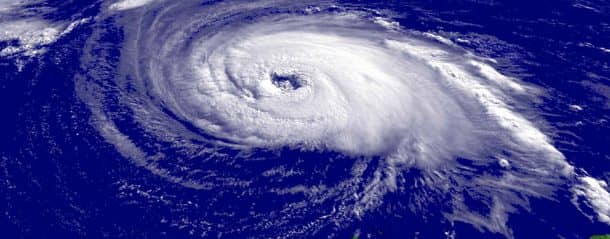
What Are Hurricanes?
We often hear the terms hurricane, cyclone, and typhoon. Aren’t they all just circular storms? The reason why all of them have different names is due to their location but not their effect. The term ‘Hurricane’ refers to the storms in the Atlantic and Northeast Pacific while the same thing in the North Pacific is known as a ‘typhoon’ and as a ‘cyclone’ in the South Pacific and the Indian Ocean. In scientific terms, they are all called ‘tropical cyclones.’ That leaves the term ‘tornado’ that is slightly different from the rest due to its smaller scale and different impact on the environment.
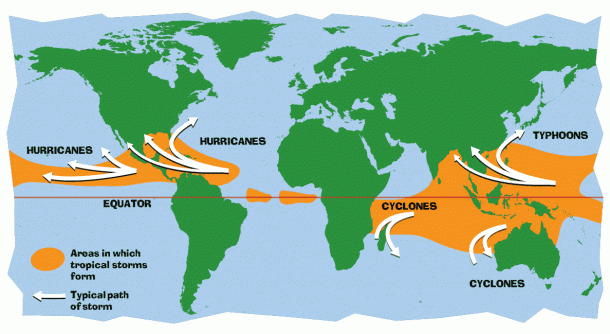
How Are Hurricanes Formed?
How are these circular storms born that engulf entire cities in their mighty winds of destruction? The twisting storms rise above the water of warm oceans near the equator, fueled by the warm and moist air that rises and moves away from the surface of the ocean.
As the warm air rises, it creates an area of low air pressure below it. The emptiness of the low-pressure area pulls in the high-pressure air from surrounding areas. Then, this new colder air begins to become warm and moist as well, rising above and creating a hollow region underneath it. The surrounding air goes on to take the space and meets the same fate, only to rise above and cool down again to form massive clouds. This huge mix of clouds and winds just continues to grow, feeding off of the water that continues to evaporate from the warmer oceans.

The twisting little cyclones are a rather frequent happening, but the scary thing about them is their scale. As long as the wind speeds remain below 39 mph, it is called a ‘tropical storm.’ However, when these speeds begin to touch 74 mph, it is now officially a ‘tropical cyclone,’ and that is a clear sign of danger. When these cyclones hit the land, they begin to lose the fuel from the ocean and eventually die out. Before that happens, they have moved far ahead into the lands, drowning them in inches of rain and engulfing pretty much everything in the twisting winds.
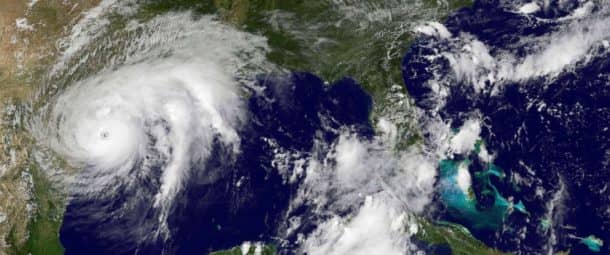
The hurricane Harvey that hit Texas was category 3 and Irma that hit Florida is only category 1 with wind speeds below 100 mph, but the destruction they have caused is no little. The image below will give you an idea of wind speeds and their relation to the cyclone category.
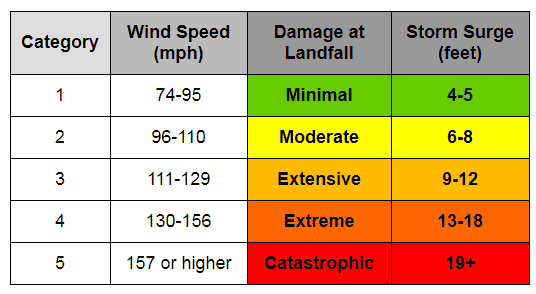
Why Are Hurricanes Formed?
The earth went through enormous changes, and about half a dozen ice ages in all its life, all without the intervention of the destructive species that we humans are. In the past hundred years or so, many parts of the world have seen fires, floods, droughts, and storms at an intensity and frequency much higher than ever before. What seems to be the reason? Climate change? Yes, the very same phenomenon that many, including the US president, continue to deny.
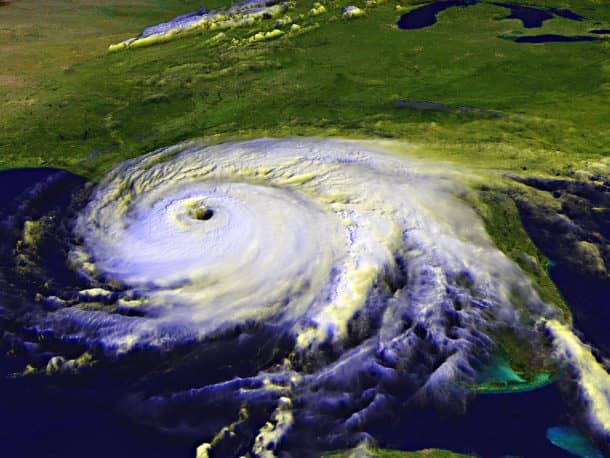
Global warming is raising the sea levels in all oceans of the world to increase the threat of storm surge, where high floods will throw water off the shore onto the land. Every 1.8-degree Fahrenheit (1 °C ) rise in temperature increases the frequency of occurrence of Hurricane Katrina-level (Category-5) storm to “two-folds to seven-folds,” as suggested by the 2013 study in PNAS.
The major disasters caused by hurricanes are from the massive amounts of rains that they drop, and as the earth warms up, the capacity of these storms to hold moisture will rise. It will then cause cyclones that are capable of destruction beyond our imagination. To our worst fears, Kerry Emanuel, an atmospheric scientist at MIT, speaks,
“We think that Harvey type of rainfalls will become noticeably more frequent as the century goes on. Water is the big killer in hurricanes, not wind. Wind gets everyone’s attention, but it’s water that kills, and it’s often water that does most of the damage.”
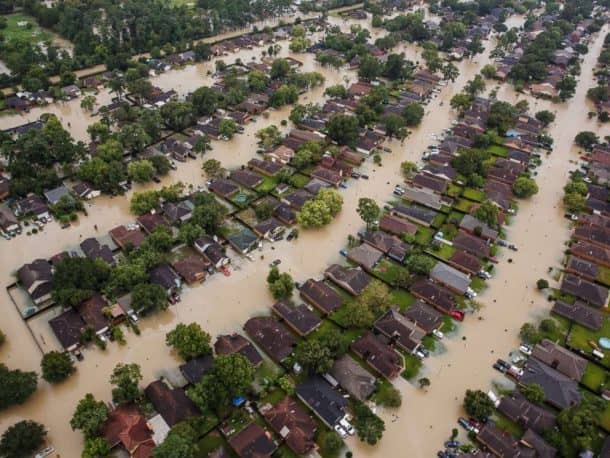
Global warming does not only mean longer and hotter summers, but a higher frequency of floods, hurricanes, and droughts. While the low-intensity Category 1 and Category 2 storms will go down in numbers, the Category 3, 4, and 5 storms will become a more frequent happening, and that calls for unimaginable destruction.
“We do think the incidence of the high-intensity events is going up, and that’s sort of what matters for society,” Emanuel said. “Those are the destructive ones.”
Hurricane Irma has only just begun, but NASA satellites operated by National Oceanic and Atmospheric Administration (NOAA) have communicated the weather forecasts, thus saving thousands and thousands of lives.
Imagine how life would be if the earth’s temperature rose by 4 degree Celsius? We will lose many of our planet to drought and floods. The pace at which the world’s population is multiplying, where do we hope to accommodate it all and still provide enough for its survival? Will technology answer all our needs and be able to produce food for us in the tiniest of land space? Is the planet closer to its doom than ever? Is a Mars colony the future of our species? So many questions are arising, and the world is continuously trying to look for the answers.
If you want to understand the science of the hurricanes a little better, here is a video from National Geographic that will help you visualize the phenomenon.


